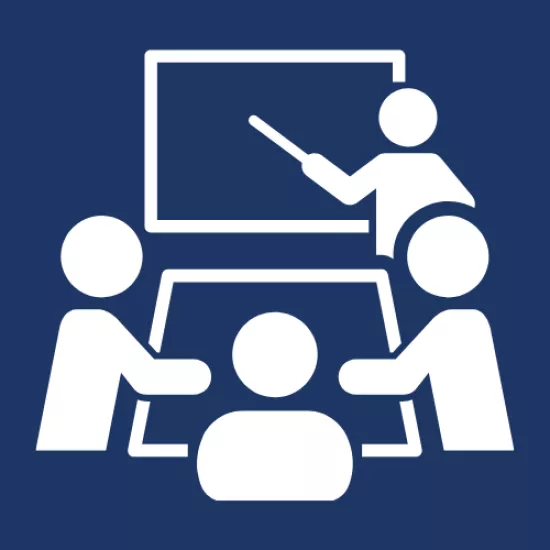Writing a final exam can be a nerve-wracking experience, even if it isn’t your first time. Nevertheless, it’s important to remember that final exams written at UTM have a specific set of rules that all students are expected to understand and follow. These rules exist to provide a fair environment for all students and are announced at the start of every exam. Any student found in violation of these rules may have a case of academic misconduct brought against them, so it is important to pay careful attention to what is and is not permitted during the exam.
Instructors, invigilators, and CPOs will be on the lookout for any signs of academic dishonesty during exams, including:
- Verbal or written communication between students (e.g. passing notes, looking at another student's test paper)
- Notes written on clothing, hands, arms, rulers, etc.
- Notes written on paper and hidden in clothing
- Unauthorized aids (including, but not limited to cell phones, smart devices, calculators) outside of the clear, sealable plastic exam bags
- Hidden cameras or earpieces
- Starting your exam early
- Continuing to write after the end of the exam is called
Tips to Write Your Exams with Integrity
1. Arrive at your exam room well before the start of the exam.
Arriving late to an exam can be a stressful experience. Students in this position often feel hurried and may not take steps to ensure that they are following the rules. This can include forgetting to remove a phone from a pocket or accidentally bringing an aid that isn’t permitted. Even if it wasn’t done with the intention to cheat, possessing unauthorized items during the exam is considered academic misconduct.
Plan for unexpected delays and pack everything you need for your exam the night before. Schedule an alarm or set up a notification so you know when you need to be out the door.
2. Do not keep any electronic devices or unauthorized items on your desk or on your person.
For all final exams written during the exam period, clear, sealable plastic bags will be provided when you enter the room to hold any electronic devices and items you may want to keep nearby. Once the items are in the bag, everything needs to be placed underneath your desk and you will not be permitted to touch it while writing the exam.
If you’re ever unsure of what is or isn’t permitted during the exam, ask your instructor or speak to the CPO in charge of that exam.
3. Don’t start the exam if you aren’t feeling well.
If you are feeling ill the day of your exam, it is better to declare your absence on ACORN and petition to write the exam at a later date. If you start writing the exam and aren’t able to finish, you will not be given the option to defer or rewrite it.
For more information on deferring an exam, visit the Office of the Registrar’s Deferred Examinations page.
4. If you are ever unsure of the rules, always ask the CPO, instructor, or invigilators for clarification.
The rules may not always be clear to you, especially if this is your first time writing a final exam at UTM. If you ever have questions about what is and isn’t permitted during the exam, speak to a CPO, instructor or invigilator at the earliest possible opportunity. You can also review the rules for final exams on the UTM Academic Calendar’s page for Final Examinations.
Please note that if the question concerns a particular aid (e.g. type of permitted calculators, aid sheets, etc.) it is best to ask before the exam officially starts so that you know whether you can have it at your desk or not.
5. Keep your eyes on your own exam and protect your work.
It may feel natural to let your eyes wander as you think, but be conscientious of this behaviour and focus on your own paper. Be careful to also keep your answers shielded from view by folding completed pages underneath the exam package and positioning yourself so that your paper is not easily read by others.
Invigilators and CPOs can move students to different seats if they suspect that they are communicating during the exam.
6. Stop writing when time is called.
When it’s time to stop writing, you need to put down your writing utensil and close your exam booklet. Even if you are only putting your name on the front cover, continuing to write on your paper after time is called can result in an allegation of academic misconduct. In addition, you must hand in your paper when an invigilator or CPO comes to collect it.
It’s a good habit to fill in your name and student number right when the exam starts, just so you aren’t rushing to write everything in at the very end.
What Happens if Academic Misconduct is Suspected?
Invigilators will advise students involved in a suspected incident of academic misconduct that it will be reported and that they may be liable to penalties under the Code of Behaviour on Academic Matters.
Invigilators will retain books/papers and any confiscated materials. For incidents involving electronic devices, the aid will be confiscated for the duration of the exam and returned when a student signs a Possession of an Unauthorized Electronic Aid form.
Once the matter is reported to the Office of the Dean, a staff member from the Academic Integrity Unit will contact the student with the next steps in the process.




